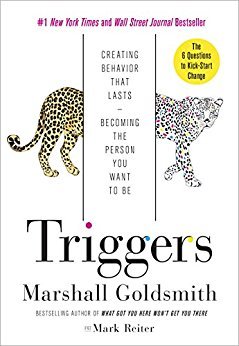More on this book
Community
Kindle Notes & Highlights
Read between
November 28, 2021 - January 3, 2022
Fate is the hand of cards we’ve been dealt. Choice is how we play the hand.
An excuse explains why we fell short of expectations after the fact. Our inner beliefs trigger failure before it happens. They sabotage lasting change by canceling its possibility. We employ these beliefs as articles of faith to justify our inaction and then wish away the result. I call them belief triggers.
When we presume that we are better than people who need structure and guidance, we lack one of the most crucial ingredients for change: humility.
Our environment is a nonstop triggering mechanism whose impact on our behavior is too significant to be ignored.
We always have a chance to create better behavior in ourselves—how we treat people, how we respond to our environment, what we permit to trigger our next action. All we need is the impulse to imagine a different us.
It requires soul-searching to figure out what serves us well, and discipline to refrain from abandoning it for something new and shiny and not necessarily better.
“Am I willing, at this time, to make the investment required to make a positive difference on this topic?”
Skill is the beating heart of high motivation. The more skill we have for the task at hand, the easier it is to do a good job. The easier to do a good job, the more we enjoy it. The more we enjoy it, the higher our motivation to continue doing it, even if the task is mentally exhausting (like solving a thorny technical problem) or physically grueling (like swimming endless laps at top speed) or dangerous (like rock climbing). If we’re great at it, we’ll jump into it despite the costs and risks.
when our lack of skill at any task dramatically reduces our motivation to do that task, defaulting to some form of good enough is a shrewd option. It’s not ideal, but it’s better than kidding ourselves—or misleading others into expecting a full-throated performance and disappointing them with something marginal.


